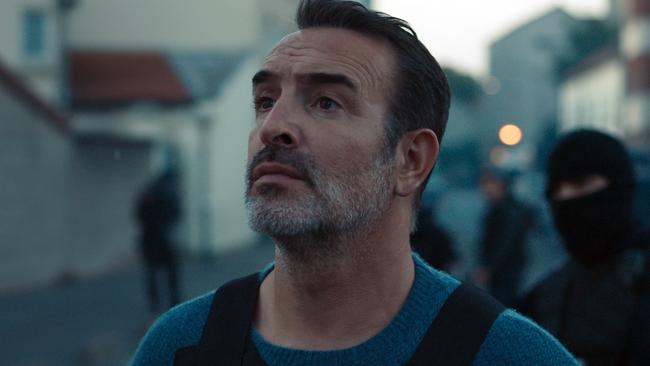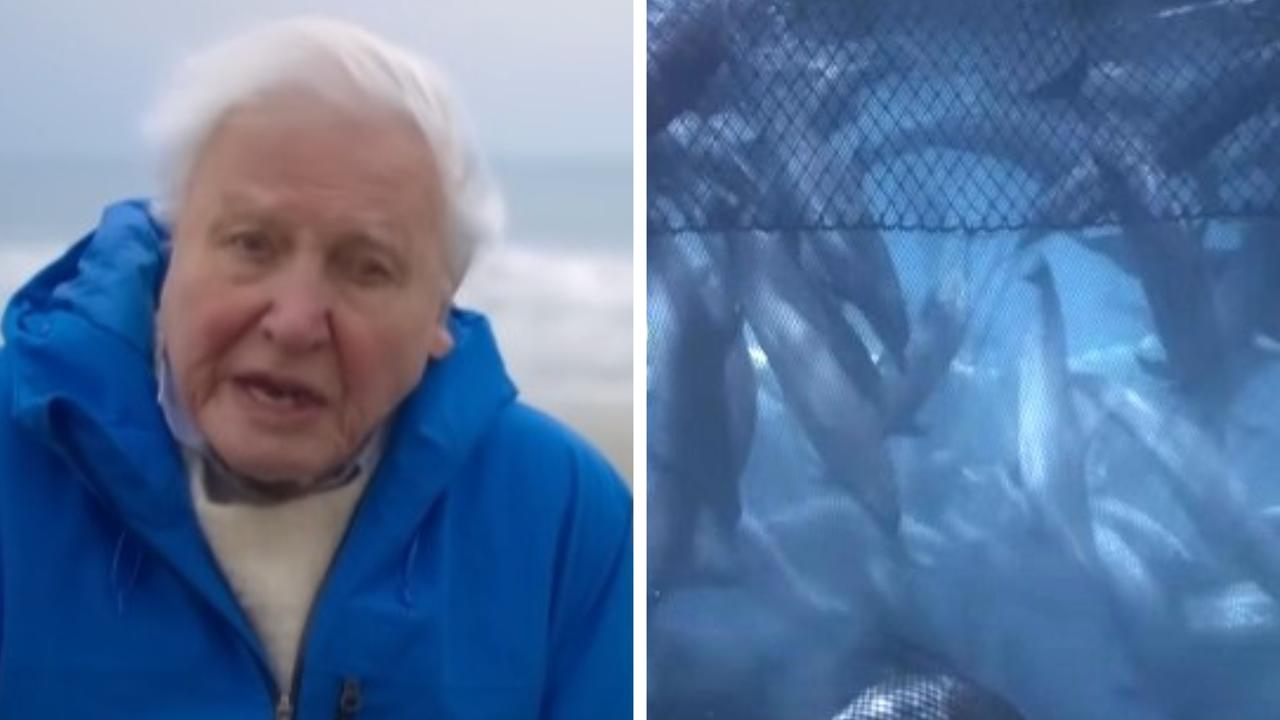November: A powerful movie of the Paris terror attacks
A searing drama set in the immediate days after the 2015 Paris terror attacks, it lifts the lid on a story “kept secret for years”.

New Movies
Don't miss out on the headlines from New Movies. Followed categories will be added to My News.
The November 2015 terror attacks in Paris tore a hole through the heart of a city.
A series of co-ordinated assaults at the Bataclan theatre, the Stade de France and throughout Paris killed 130 and injured hundreds more, people going about a what started as a regular Friday night.
In the aftermath, police launched a wide investigation which would eventually lead to the death or capture of those responsible.
Those frenzied days immediately following the attacks are the focus of a new drama, November. Directed by Cedric Jimenez and starring Jean Dujardin, Sandrine Kiberlain and Lyna Khoudri, the powerful film charts the urgent investigation of a team of anti-terror cops chasing down leads in the hope of preventing another attack.
Jimenez spoke with news.com.au about the process of making a movie steeped with significance and sensitivities.
November was such a propulsive, riveting experience, and it told a side of the story that I think a lot of people don’t know.
For sure. In France, we know it a little bit more, but even in France it was not such a known story – what happened after the attacks and how the investigation went. Not many people knew because it was a secret investigation and everything was kept secret for years.

What was your process of discovering these stories? Did you talk to the people involved? What did you have to do navigate access to that information?
The best access was the police who were there. They lived through everything. But it was difficult to make them talk. First you meet them and they’re nice and they want to talk but they don’t want to talk too much. They don’t want to say too much of what happened and how it happened, and the way they work.
What was interesting for me was the way they investigate. After weeks and many meetings, they started to feel more comfortable and they’re not so scared they’ll be betrayed. It’s a human relationship we’re building.
We didn’t need so much documentation because during those five days, they’re the only people who know what happened.
Of course, it’s not a documentary, it’s a narrative feature but how do you strike the balance how you tell the police’s story and crafting a multifaceted version of it so it doesn’t rely too much on the police painting the best version of themselves and their own actions?
When you talk to them, you understand what is behind what they’re saying of how they lived through it because the facts in the movie are real. It’s how it happened, how they felt emotionally over those five days.
It’s my interpretation of what I felt when I talked to them.
There’s nothing invented, there’s nothing there that didn’t happen. It’s not too introspective, it’s about the urgency. How they acted.
One minute is one minute too long, you are always running after people who can commit another attack, there could be another catastrophe. My point was to try and capture this urgency, in a psychological way.
You depicted this character, a woman who was an informer. She’s in witness protection now but did you get any access to speak to her?
No, because she’s protected. She’s anonymous. She has another identity and no one can know where she is, who she is, what her name is now.

What I know about her is what the police told me about her. But I read the interrogations, and the big scene in the movie is pretty similar to the real one.
From what I know about her, I tried to change [biographical details] about her. She’s younger in the movie, she’s not married in the movie, because I wanted it to be as far away as possible from the real person because I didn’t want to break her anonymity.
November 2015 wasn’t very long ago, these attacks are still very much in people’s memories, so there are sensitivities around telling this story. I noticed you didn’t depict the actual attacks.
It’s super sensitive in France, even more in Paris. Because the trauma was super high here and everything was insane. I know people who lost people. Everybody knows someone who knows someone who lost people. It’s a very sensitive topic.
It would be disgusting to try to recreate the massacres, the people dying. I didn’t want that at all. I would never do that. For me, the story was the aftershock. The point of view was the five days after the attack, and I tried to respect that. It was important to me to have humility and respect.
What was the atmosphere like on set, was there a sense of respect to the significance of it?
Yes, I could feel it. For example, the actors were not making trouble, they were being very humble. I love actors but sometimes they can be like “me, me, me”. But not on this film.

It was the same for everybody, and nobody felt they were more important than the trauma. I could feel it on set, particularly from the actors. Actors can be a bit selfish in a way, but it’s normal. That’s why they’re actors and there’s nothing bad about it. But on this one, the selfish part disappeared.
Do you think seven years after the attack is the right time? Were you worried it was too soon?
It cannot be one year after, or in the months following, you have to wait a little bit. But it’s more important how you do it. Because you can do something very, very bad 20 years later or you can do something very good five years later.
What do you think is the value of art, the value of storytelling in reckoning with national traumas such as the November attacks?
You will learn something. After the movie, someone might say, “Oh yes, that was interesting, I watched something I didn’t know, now I will do more research”. One hour and 50 minutes is not enough to tell something very deeply.
But it’s enough to spark an interest, an intelligent point of view about something. Cinema is alive, it’s in front of you, actors and everything else make it real. So it will touch people and maybe afterwards they will think about what they saw.
November is in cinemas now
Interview edited for clarity and length
Originally published as November: A powerful movie of the Paris terror attacks





